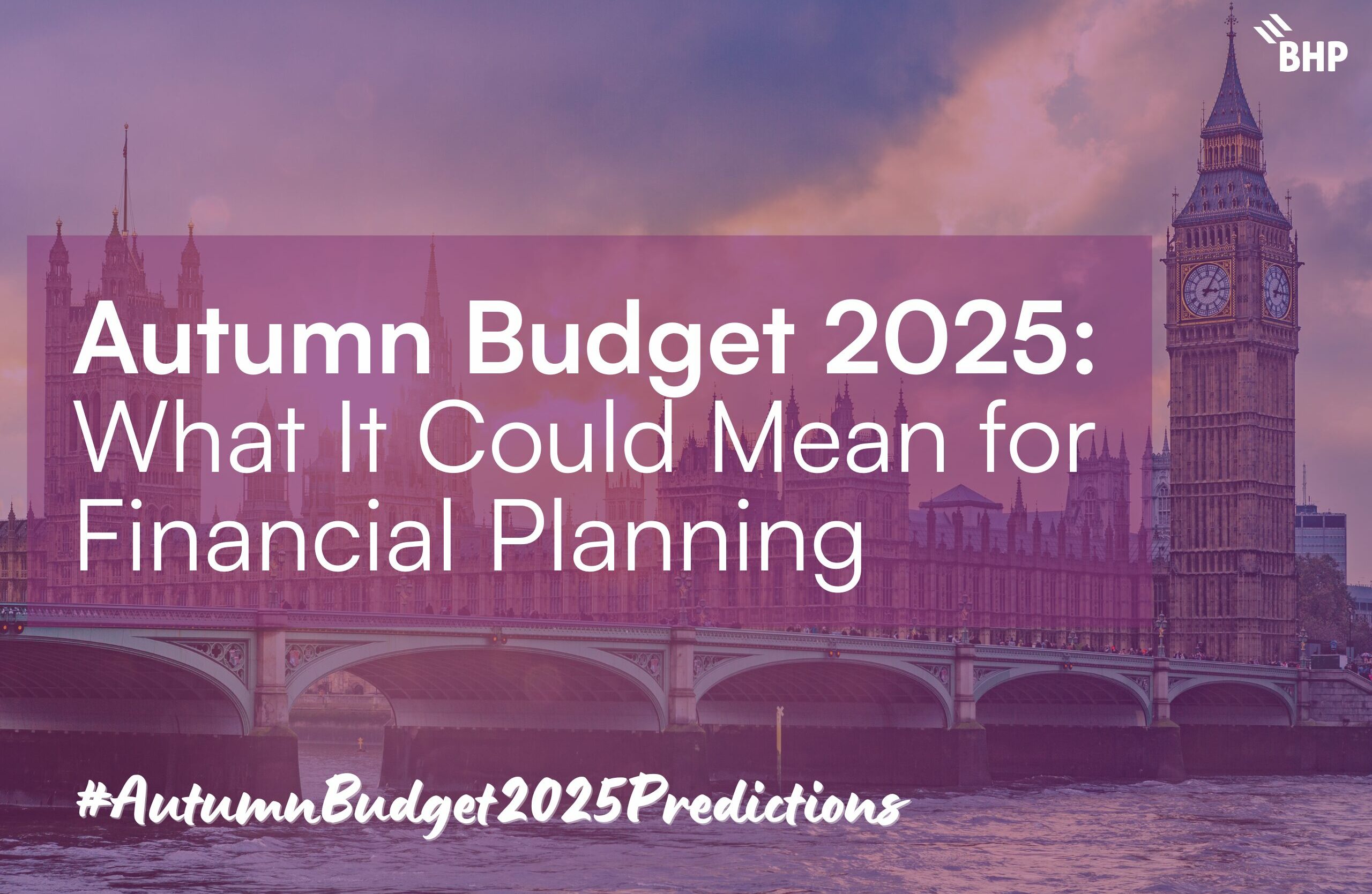With the Autumn Budget now confirmed for 26 November, all eyes are on Chancellor Rachel Reeves and how she plans to tackle the UK’s fiscal challenges. While we won’t know the full details until Budget Day, the growing chatter among think tanks, the media, and industry experts is painting an interesting picture and reminding us just how important it is to seek regulated financial advice before making any big financial moves.
What’s Being Discussed?
Several potential changes are being widely reported, including:
- Cash ISA allowance: Possible reduction from £20,000 to £10,000, as part of broader ISA reforms aimed at encouraging UK equity investment.
- Property tax reform: National Insurance (NI) could be extended to rental income, bringing landlords’ earnings into the NI net.
- Capital gains and inheritance tax: Adjustments to rates, thresholds, and gifting rules are under review, including a possible lifetime cap on tax-free gifts.
- Pension changes:
- A flat rate of tax relief (e.g., 25–30%) may replace the current tiered system.
- Salary sacrifice schemes may lose their NI exemption.
- Wealth-focused taxation: A “mansion tax,” wealth tax on assets over £10 million, and broader NI on investment income are being floated.
The Chancellor is reportedly targeting a £30-£50 billion package of tax rises and spending adjustments, with a clear message that “those with the broadest shoulders should pay their fair share.”
Why Timing and Advice Matter
Budget speculation often leads to premature action based on incomplete or inaccurate information. Acting before measures are confirmed can result in decisions that are:
- Inefficient – You could miss out on better options that emerge later.
- Unnecessary – Many rumoured changes never make it into the final budget.
- Misaligned – Quick decisions may clash with your long-term financial goals.
Even after the Budget is announced, interpretation and implementation take time. Understanding how confirmed changes affect your specific circumstances, whether pensions, property, investments, or tax planning, requires expert analysis, not hearsay.
The Value of Regulated Advice
A qualified financial adviser can help you:
- Break down the Budget’s announcements and what they mean for your specific circumstances.
- Spot legitimate planning opportunities that align with your goals.
- Avoid costly missteps by ensuring any adjustments align with your broader financial strategy.
Rushed decisions, especially around pensions, gifting, or property, can have long-term consequences. A professional adviser can help you navigate these complexities with confidence.
Plan with Facts, Not Fear
In uncertain times, the best approach is not to react to speculation, but to plan carefully once the facts are known. If you’re unsure how the upcoming Budget might affect you, or want to prepare sensibly for potential changes, now is the right time to seek regulated financial advice.
This article is for general information only and does not constitute personal or financial advice. The information is based on our understanding of current legislation and publicly available commentary as of October 2025, which may be subject to change. Tax rules and legislation can change, and their impact will depend on individual circumstances. Always seek regulated financial advice before taking or refraining from any action.
BHP Financial Planning Limited is authorised and regulated by the Financial Conduct Authority. Registered Office. Albert Works, Sidney Street, Sheffield, S1 4RG. Registered in England no. 03833962
This material is for informational purposes only and should not be relied upon as professional advice.



